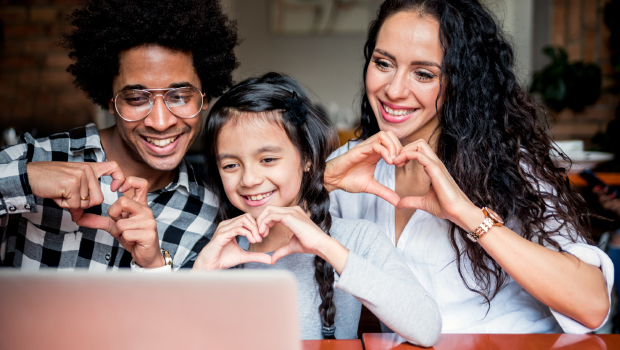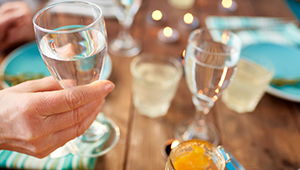Tips for a safe and sane holiday — despite COVID

KPWHRI psychologist and researcher Ben Balderson, PhD, shares advice for keeping our spirits up during this most unusual holiday season
By Ben Balderson, PhD, Research Associate at Kaiser Permanente Washington Health Research Institute and Clinical Psychologist at Kaiser Permanente Washington
While we often think of the winter holidays as a fun and joyful time, the season can also be emotionally difficult. This year, with COVID-19 looming large, many are feeling especially challenged due to social isolation, worries about the illness, and its associated losses.
As a psychologist, I’m often asked for ideas to help patients keep their spirits up. Here are a few I’m sharing this season.
Planning ahead
Make intentional decisions about your “social bubbles” for the holidays. Talk with friends and family members in advance to create a plan that everyone can abide by comfortably. Decide in advance who you’ll have face-to-face time with (your household members); who you’ll see in a socially distanced way (6+ feet away, outdoors, masks on); and who you’ll visit virtually (online or by telephone). These CDC guidelines for holiday celebrations can help.
Be prepared to decline invitations by thinking ahead about what you might say. (Example: “Thanks so much, but for now I think it is better for both of us to find an alternative that is healthier and safer.”) Also, be prepared that others might decline your invitation. Try to empathize and hear their concerns; we’re all struggling, but we can get through this together.
Don’t cancel scheduled time off. With travel limitations related to the pandemic, those with jobs may feel tempted to forgo vacations, but I recommend against it. Such breaks help us to punctuate holidays, mark the passage of time, relax, and celebrate. Vacations are typically good for us, even when they are staycations.
Create a special outdoor space for hanging out. Discuss with household members your shared goals for such an area. Do you want to make it a peaceful oasis? A place for games? A spot for visiting? How will you keep it clean, well lit, and (somewhat) warm? Making it functional and comfortable will increase the chances you’ll use it.
Find new ways to celebrate
COVID makes in-person contact with those outside our households difficult or even impossible, but many are still finding ways to celebrate by replicating classic holiday traditions and creating new ones.
Transform in-person activities into virtual ones. For example, spend time with a loved one via phone or video (Zoom, Skype, FaceTime, etc.) as you decorate or prepare your traditional family recipe together. Or, have a virtual dinner together, using multiple devices so everyone in your home is not huddled around one screen. Play online games together. Or watch the same sports events and movies together in different locations, sharing comments via text, phone, or video.
Send holiday cards again. This may be the year to resurrect this time-honored tradition, whether by snail mail or electronically. Liven up your correspondence with a newsletter. Include personal news, pictures of you and the person you’re sending to, or your favorite recipes.
Deliver traditional holiday foods to your family, friends, and neighbors. This may be especially important to those at higher risk of illness who can’t get out. Drop off your offering in a way that doesn’t require contact.
Think beyond material gifts. As many are facing financial struggles, keep in mind there are numerous ways to express caring without buying “stuff.” Offer kind acts such as phone calls, a heartfelt letter, yard work, or a handmade gift.
Practice good self-care
Taking good care of ourselves is beneficial every holiday season, but especially so during this pandemic. Remember these basics:
Stick with your exercise program. Daily physical activity can help improve your mood, relieve stress, and burn extra calories. Get outside if you can. The fresh air, light, and vitamin D will boost your energy and lift your mood.
Enjoy holiday foods without overdoing it. Balance calorie-packed treats with lighter, healthier foods. Limit portion size.
Be mindful of your alcohol use. If you drink, try to limit it to 1 or 2 drinks a day. If you don’t drink because of problems with alcohol, avoid triggers and plan ahead for support via virtual meetings or calls to helpful friends.
Acknowledge your feelings — and your losses. Many people are feeling grief over a variety of losses right now. These range from loss of a loved one to loss of employment to simply our loss of routines. We may be feeling anxious about the future or sad because we can’t be with friends and family who are sick or suffering losses of their own.
Whatever grief you’re feeling, it can help to connect with others. If you can’t do it in person, do it by phone, video, or online. Seek out friends, grief counseling, support groups, or hotlines. If you’re religious, faith-based organizations have many services.
Try to be there for others. Listening, being present, and helping another with their grief can be so healing.
Appreciate each other. If the pandemic has any silver lining, it may be this: Many people are becoming more aware of how important they are to each other. Focusing on our relationships with gratitude can help us cherish the times we have together. It can draw attention away from negatives and toward the positives, helping us to think of creative and fun ways to connect and celebrate.
Think long-term. We must continue to be vigilant against COVID, especially as the infection rate surges this winter. But remember: Societies have been through pandemics in the past, and these challenging periods don’t last forever. We’ll come out of this over time, and when we do, what a celebration that will be!
Live Healthy: Top Topics
Live Healthy

15 tips for cutting back on alcohol
Want to make positive, healthy changes in your drinking? KPWHRI experts have a booklet with research-based advice.
live healthy

How do you know when you’re depressed?
Evidence shows depression can have a direct effect on your body, taking away your energy and slowing you down.



